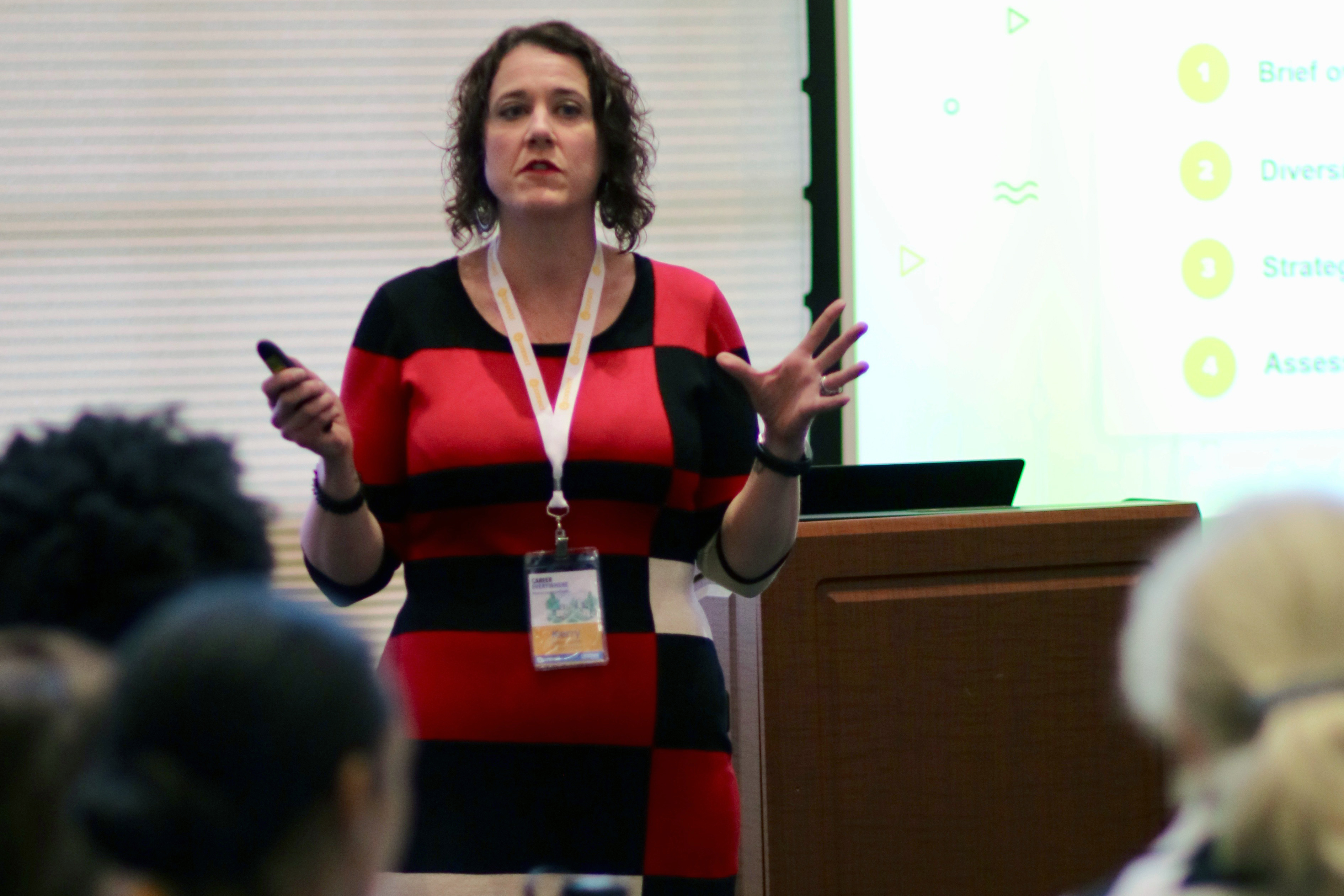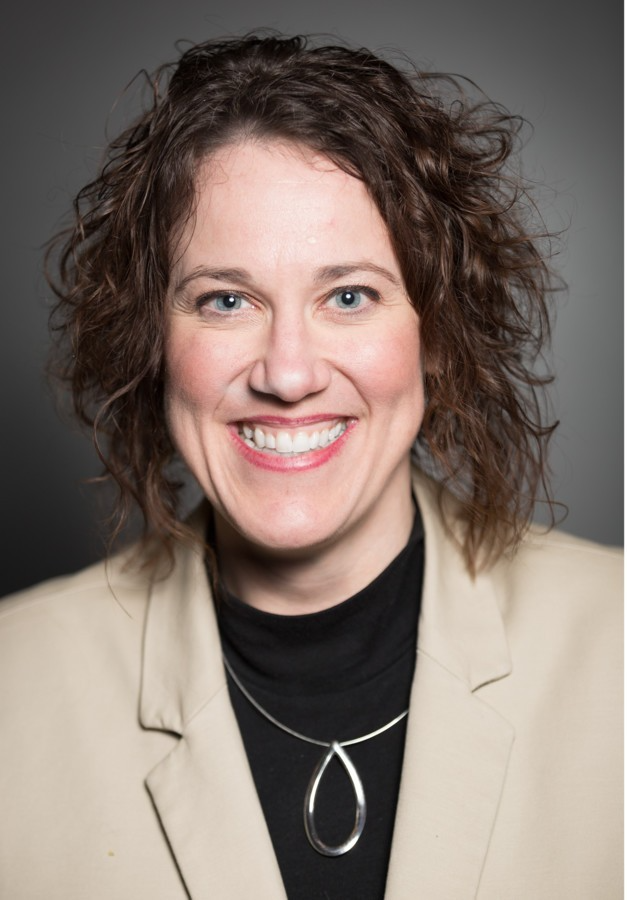Finding your place in the field through personalized career advising
September 6, 2022

By Lindsay Kuczera
Most of us grow up with many different interests, which can make figuring out the future a bit tricky. Virginia Tech career advisor, Kerry Spitze, is no stranger to this feeling. Before pursuing an education in counseling, Kerry trained as a singer and actress—but that’s another story—and this diverse set of interests made her realize that an advisor to help her assess her skills and goals would have been a very valuable service to have.

Kerry Spitze works in Virginia Tech’s Office of Career and Professional Development and serves the entire graduate student body around the Washington, D.C. area, as well as those studying virtually. She is part of a team that offers advising services for students from all three Virginia Tech campuses across programs. She holds a graduate degree in counselor education, and started out as a mental health counselor before deciding to transition over to the world of academic advising.
Our careers are influenced by our world experience
It’s difficult to separate world events from who we are, and we shouldn’t have to. Kerry’s mental health counseling background is a complementary skill to providing dynamic, compassionate career advising in the age of pandemics, climate crises, and mass shootings. Although Kerry doesn’t offer mental health services in this role with Virginia Tech, she does use active listening and reflection approaches to help students navigate their place in their programmatic field. For example, a student may seek Kerry’s assistance with their resume, but through the process, they may discover what they really want to work on is a bigger concern related to their career path.
One of the key differentiators of Virginia Tech’s MNR degree programs is a career-focused aspect. Many people who are looking to pursue higher education are also trying to figure out how to translate the knowledge into work and apply it in meaningful ways. Alongside that practical focus is the need for career services to assist students in the right direction. It’s much more than a resume review; it’s about tailoring the experience to ensure students thrive in the workplace and in their field.Whether it’s career exploration, self-assessment, networking, interviewing, salary negotiation, or just an exploratory conversation, there’s something for everyone.
Even more fantastic, these career services are available both to current graduate students and for alums for up to two years post-graduation! Sometimes, we find ourselves too busy with the curriculum and our personal lives to make time for these additional services. Having services available to alums shows that Virginia Tech’s support of its students goes well beyond graduation. “We want to make sure students are feeling supported at any point in their career,” added Kerry.
Career advising is personal
Kerry recognizes the important role career services play in guiding students toward their personal and professional goals. “As I worked more with students, I realized that their academic program is important, but it's always done in relation to what they want to do and who they want to become in their lives and in their career identity,” Kerry said.
More than advising, Kerry often takes on a mentorship role. By getting to know students well, she can guide them in the right direction and can flag job opportunities she sees that may be of interest.
To Kerry, the most rewarding part of this work is the relationships she builds with students. “I know that I’m working with students who are going to make the changes that we need to see in the world, and that’s just extraordinarily gratifying for me,” Kerry said.

Seeking career services?
Students and alums (up to two years post-graduation) can make an appointment through Handshake.
Don’t have a specific question? That’s ok! Career advising doesn’t happen in just one half-hour session. The first meeting can be a general conversation, with focused questions that help Kerry and other advisors get to know students on a personal level and understand what brought them to the program while leaving space to dream and brainstorm.
Kerry’s parting advice for those reading this and looking to make a career change: it can happen, it just takes a little time and patience.


